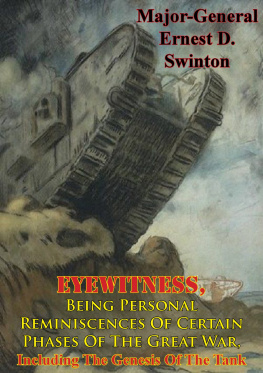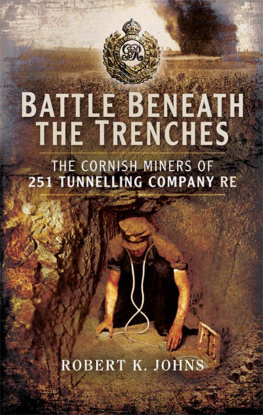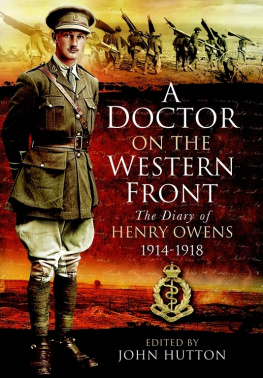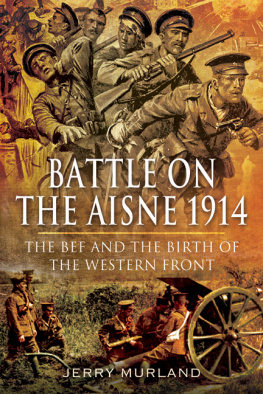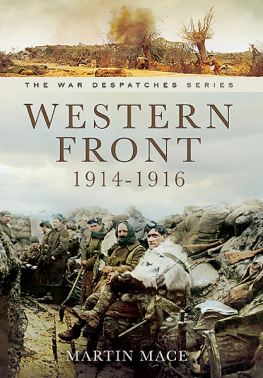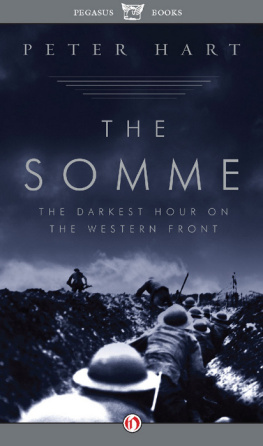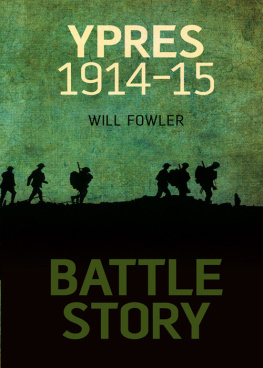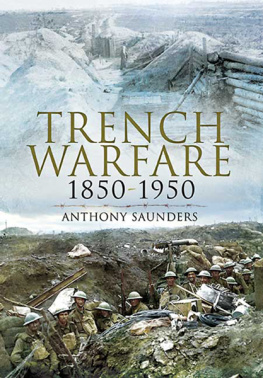

This edition is published by PICKLE PARTNERS PUBLISHINGwww.picklepartnerspublishing.com
To join our mailing list for new titles or for issues with our books picklepublishing@gmail.com
Or on Facebook
Text originally published in 1933 under the same title.
Pickle Partners Publishing 2015, all rights reserved. No part of this publication may be reproduced, stored in a retrieval system or transmitted by any means, electrical, mechanical or otherwise without the written permission of the copyright holder.
Publishers Note
Although in most cases we have retained the Authors original spelling and grammar to authentically reproduce the work of the Author and the original intent of such material, some additional notes and clarifications have been added for the modern readers benefit.
We have also made every effort to include all maps and illustrations of the original edition the limitations of formatting do not allow of including larger maps, we will upload as many of these maps as possible.
EYEWITNESS Being Personal Reminiscences of Certain Phases of the Great War, Including the Genesis of the Tank
BY MAJOR-GENERAL SIR ERNEST D. SWINTON K.B.E., C.B., D.S.O., R.E. (Retired)
( Ole Luk-Oie )
CHICHELE PROFESSOR OF MILITARY HISTORY FELLOW OF ALL SOULS COLLEGE OXFORD
TABLE OF CONTENTS
Contents
BY THE SAME AUTHOR
The Great Tab Dope
The Green Curve
The Defence of Duffers Drift
Eyewitnesss Narrative of the War, September, 1914, to March, 1915.
A Year Ago, From April, 1915 to July, 1915





DEDICATION
TO THE INFANTRY
WHO DURING THE GREAT WAR BORE THE HEAVIEST BURDEN; SO OFTEN HAD TO ATTEMPT THE IMPOSSIBLE; AND NOT INFREQUENTLY ACHIEVED IT.
TO THE NEW ARM
WHICH WAS CONCEIVED AND CREATED TO SAVE THE LIVES OF ITS UNPROTECTED BRETHREN ON FOOT; TOOK THE FIELD AS THE HEAVY SECTION,
MACHINE GUN CORPS; CARRIED ON THIS HIGH DUTY AS THE TANK CORPS; AND REVOLUTIONIZED THE TACTICS OF LAND WARFARE.
TO THE WORKERS IN SHOP AND FACTORY
WHO BY THEIR SKILL AND LABOUR FORGED THE NEW WEAPON AND KEPT ITS SECRET.
DER AUGENZEUGE
Er 1st der Mann, der niemals flieht,
Er 1st der Mann, der alls sieht,
Was in dem Kriegsgebiet geschicht
Der Augenzeuge.
Denn er kommt stets zur rechten Zeit,
Dort wo am keftigsten der Streit,
Und sicht die kleinste Kleinigkeit
Der Augenzeuge.
Er kennt den kleinsten Korporal,
Er kennt den grssten General,
Und was er weiss 1st kolossal
Der Augenzeuge.
Er 1st bei jeder Heldentat
Und zwischen Bombe und Granat
Schreibt akkurat sein Referai
Der Augenzeuge.
Beschiesst man eine Kathedral,
Dann steht er just in dem Portal
Und schreibt n seinem Kriegsjournal
Der Augenzeuge.
Wird wo ein Dampfer torpediert,
Ein Sanittszug bombardiert,
Dann sitz er drin und referiert
Der Augenzeuge,
So fliegt er um das Erdenrund
Von Front zu Front, zu jeder Stund,
Wird nie verwundt und bleibt gesund
Der Augenzeuge.
So lange doch ein dummer Wicht
Liest den berhmten Kriegsbericht,
Bleibt unverletzt und stirbt nock nicht
Der Augenzeuge.
(1915. Source unknown.)
THE EYEWITNESS
He is the man who never flees,
He is the man who all things sees,
And braves the battle and the breeze
Eyewitness.
Whereer the struggle waxes hot,
Hes there at once, right on the spot,
And scoops the newsthe blessed lot
Eyewitness.
Intimate of N.C.O.s,
Pal of Generalissimos,
All there is to know he knows
Eyewitness.
Hes in at every gallant deed.
To shot and shell he pays no heed,
But writes his circumstantial screed
Eyewitness.
Cathedrals may be shelled to bits,
Within the porch he calmly sits,
Composing stuff to give you fits
Eyewitness.
Torpedo strikes a steamer square,
Red Cross train is blown in air,
He II be on board to see alts fair
Eyewitness.
From front to front he ever speeds,
Unscathed around the world proceeds,
And first-aid dressing never needs
Eyewitness.
And while theres left one single guy
To swallow his recurring lie,
Hell carry on and never die
Eyewitness.
(Free translation by E. D. S.)
FOREWORD
To recall events years after their occurrence is to attempt to revive dimmed impressions and to fill in outlines which are blurred. But the lapse of time gives perspective, heals wounds, tempers judgment. This reflection and the belief that emotion is best remembered in tranquillity encourage me to embark upon what, in spite of great misgiving, I now undertake.
This is a collection of personal reminiscences of certain phases of the Great War. I write of things I was privileged to see, to hear, to know, and to feel. Some were important: many were trivial: but all were actual. I do not put forward a history of that period. Nor do I aspire to offer a picture of the misery, squalor, injustice, and foulness, which, inseparable from an exhibition of massed brute force, are not its only manifestations.
Though personally I was fortunate in escaping the hardships and prolonged mental and physical agony from which so many suffered, I was not insensitive to these things. Neither surprised nor dismayed to find war horrible, I do not call upon High Heaven to witness my disillusionment, nor do I indulge overmuch in introspective analysis of my own emotions or reactions. To me, against this overwhelming background of mortal anguish, the minor picturesque features, about which some have rhapsodized, made but slight appeal, for in my opinion they counted but little in the scheme of things.
If, beyond admiration and gratitude for what we achieved in spite of handicaps and errors, there be any distinct sentiment of which I am conscious running through what I write, it is a protestwhich at times becomes explicit, but never, I hope, stridentagainst the rigid non-receptivity and complacent omniscience so frequently manifested by established authority, the doctrinaire and the pseudo-Brahmin. These traits are by no means peculiar to our nation. Nor are they confined to the military profession. But, during the years 1914-1918, when we all had to deal with things undreamt of in our pre-War philosophy, they had an exceptional opportunity to exhibit themselves in the military hierarchy, which had to cope at first-hand with new elemental facts and with fluid and unprecedented conditions. If any consistent purpose inspired my own actions or suggestions, it was in almost every instance concerned with the moral factor and with the exploitation of that elusive, and in war most powerful, element surprise.
Next page
